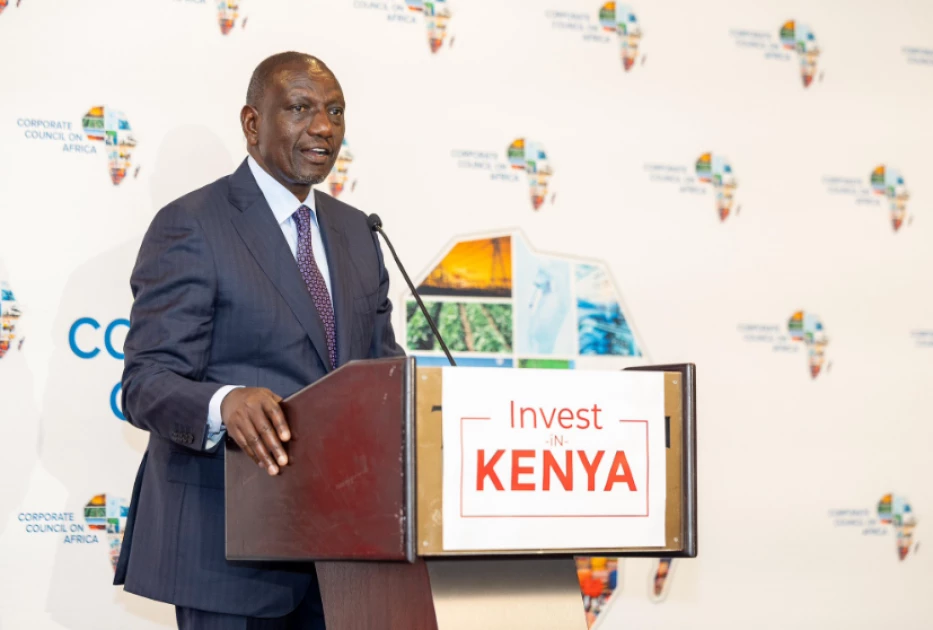President William Ruto has faulted the current global climate finance structure, saying it unfairly places the biggest burden on African nations despite their limited contribution to the climate crisis.
Speaking at the High-Level Solutions Dialogue on Climate Finance during the 80th United Nations General Assembly on Tuesday, Ruto said it was wrong for African countries to be expected to raise 60 per cent of climate funding from their own limited resources.
He noted that this requirement is a heavy load for nations already facing high living costs and recurring climate-related disasters.
“We must not ignore the risks of overtaxing small, vulnerable economies already battling high costs of living and climate shocks. For many of our citizens, the social contract does not allow this to be the ultimate solution,” he said.
The President called for a shift in approach, urging the international community to embrace innovative measures that can ease financial pressures while unlocking investment opportunities.
He identified plugging illicit financial flows, creating a fair global tax system, easing debt burdens, and expanding investment as key steps.
“Africa loses nearly $90 billion every year through leakages that rob us of the very resources we need for climate action. This is why our continent is strongly advocating a fairer global tax system through the proposed UN Tax Convention,” Ruto explained.
He outlined that the future of climate financing should focus on debt relief, mobilising domestic funds, attracting private sector capital, scaling up international public financing, and supporting country-led strategies.
Ruto stressed that Africa is positioning itself as a global hub for climate-positive growth that fuels both development and sustainability. “Our greatest opportunity lies in growing and diversifying our economies through climate-positive growth, turning the very solutions to climate change into drivers of development,” he said.
Kenya, he noted, was among four countries that sponsored the Independent Expert Review on Debt, Nature and Climate. He argued that knowledge and ideas are already available, and what remains is bold action.
Appealing to investors, Ruto urged them to reconsider outdated views about Africa, pointing out the continent’s opportunities in mineral processing, agricultural value addition, and alternative fuels.
“Too often, perceptions of risk overshadow reality, yet Africa offers some of the most exciting opportunities for green growth in the world,” he said.
The President highlighted initiatives such as the Africa Green Industrialisation Initiative (AGII) and the Accelerated Partnership for Renewables in Africa (APRA) as proof of Africa’s readiness.
“We are reforming our policies, mobilising domestic capital, and building strong project pipelines to attract global investors,” he said.
He revealed that eight African financial institutions had already signed a cooperation framework to mobilise $100 billion in investments but emphasised that long-term success relies on international collaboration.
“We are doing our part but, to succeed, we need global offtake agreements, market access, and foreign investment at scale,” he said.
Ruto concluded with a warning that the world is running out of time to tackle the climate crisis.
“Climate change is a global existential threat. What we do, or fail to do, will shape the destiny of humanity. Let us act boldly and together, and match words with deeds if we are to turn the challenge of climate change into the greatest opportunity of our time,” he said.

